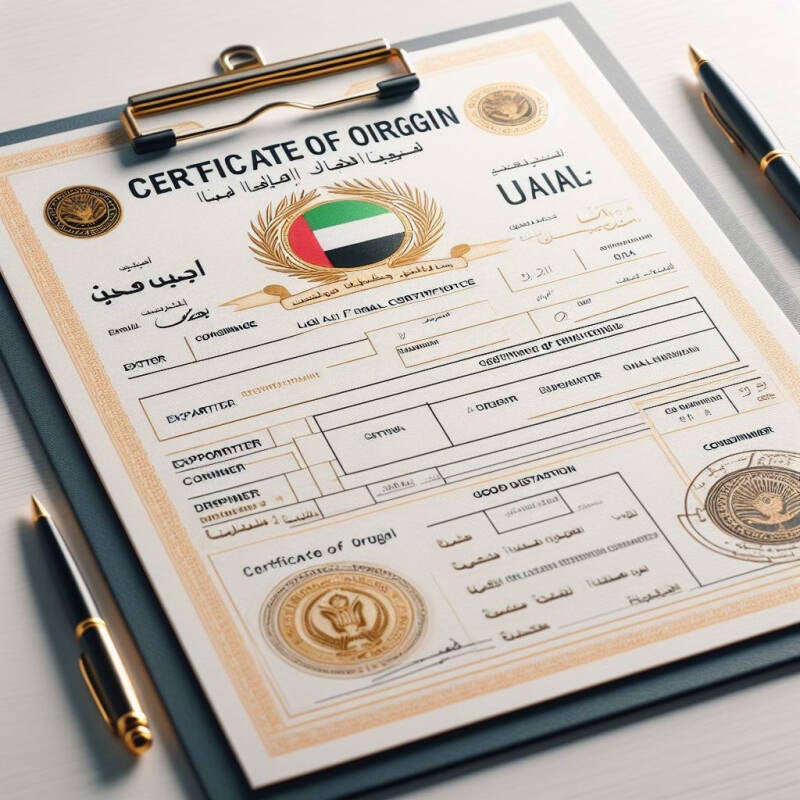In the realm of international trade, the Certificate of Origin (CO) stands as a crucial document, validating the origin of goods exported from one country to another. In the United Arab Emirates (UAE), this document plays a pivotal role in facilitating smooth trade operations while ensuring compliance with international trade regulations.
What is a Certificate of Origin?
A Certificate of Origin is a legal document that confirms the country where the exported goods originated. It provides vital information about the product, its manufacturer, and the country in which it was produced. This document serves as proof for customs authorities, importers, and other stakeholders, helping them determine tariffs, quotas, and other trade-related aspects.
Importance in UAE Trade
In the UAE, a Certificate of Origin holds significant importance due to the country's thriving trade relations with various global partners. It serves as a fundamental requirement for exporting goods to many countries, enabling smoother customs clearance processes and ensuring adherence to trade agreements.
Obtaining a Certificate of Origin in the UAE
Obtaining a Certificate of Origin UAE involves a structured process typically overseen by local chambers of commerce or other authorized entities. Exporters must provide detailed information about the goods, including their description, value, quantity, and country of origin. This information is meticulously verified before the issuance of the certificate.
Types of Certificate of Origin
The UAE offers various types of COs tailored to meet specific trade agreements and requirements. Some common types include:
- GCC Certificate of Origin: For trade within the Gulf Cooperation Council (GCC) member countries.
- Arab Certificate of Origin: Recognized among Arab League member states.
- EUR.1 Certificate: Facilitates preferential trade between the EU and the UAE.
- Non-Preferential Certificate: Used for general exports outside preferential trade agreements.
Benefits and Challenges
The CO streamlines trade processes by reducing potential delays at customs, ensuring accurate tariff calculations, and fostering trust between trading partners. However, challenges such as stringent documentation requirements and differing regulations across countries can pose obstacles for exporters.
Future Trends and Adaptations
As international trade dynamics evolve, so do the requirements and procedures related to Certificates of Origin. The UAE continues to adapt its processes to align with global trade practices, exploring digitalization initiatives to enhance efficiency and reduce paperwork in obtaining and verifying COs.
The Certificate of Origin remains a cornerstone of international trade in the UAE, serving as a testament to the quality, authenticity, and origin of exported goods. Its role in facilitating trade relationships, ensuring compliance, and reducing trade barriers underscores its enduring significance in the global market landscape.
In conclusion, understanding the nuances and importance of the Certificate of Origin in the UAE is pivotal for businesses engaged in international trade, ensuring seamless operations and fostering sustainable trade partnerships.

Reactie plaatsen
Reacties